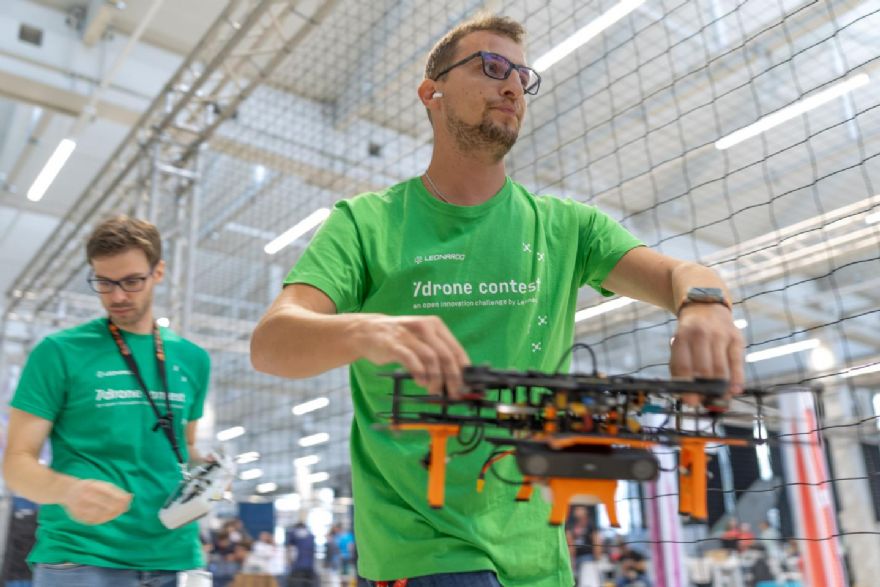
More than 50 university students from seven Italian universities participated in the
2025 Leonardo Drone Contest, held at the beginning of October during
Italian Tech Week, which is now in its sixth edition. The contest, which seeks examples of ‘Open Innovation’ applied to artificial intelligence (AI) and unmanned systems, saw first place go to the team from Tor Vergata University, followed by Milan Polytechnic, and the University of Naples Federico II.
The participants tested autonomous robotic platforms – both aerial unmanned aerial vehicles (UAVs) and ground-based unmanned ground vehicles (UGVs) — capable of moving through unknown environments without global navigation satellite system (GNSS) signals, while simultaneously providing data and maps to a ground control station. At the heart of the challenge was the development of innovative localisation, navigation, and human-machine collaboration solutions, powered by artificial intelligence (AI) algorithms able to process collected data in real time.
This year’s contest also highlighted the value of cooperation between heterogeneous systems (more than one kind of processor core), with the aim of planning and conducting coordinated missions between UAVs and UGVs. The organisers said: “This multi-domain perspective tackles operational complexity by enabling AI-based solutions to reconstruct surrounding environments, even in the absence of satellite support.
“Without GNSS signals, autonomous platforms must collaborate with one another, offering concrete contributions to the management of critical scenarios such as post-disaster inspections, surveys in hazardous or inaccessible areas, and emergency operations requiring speed, accuracy and safety.”